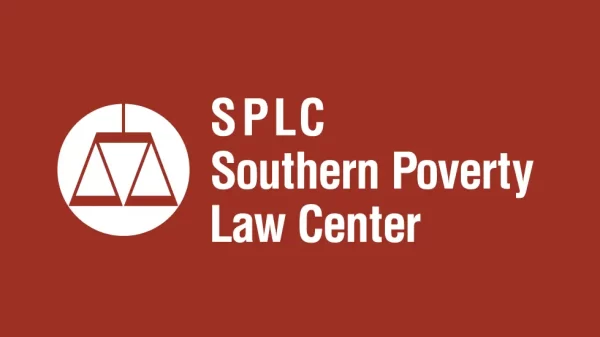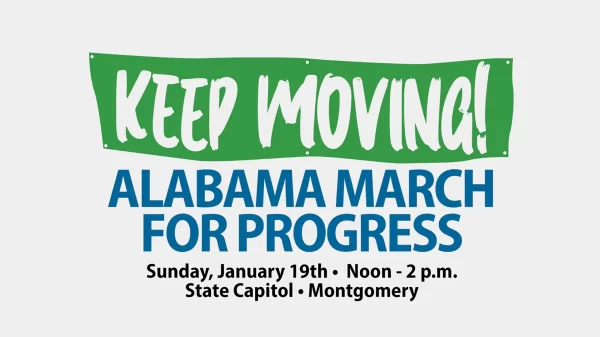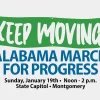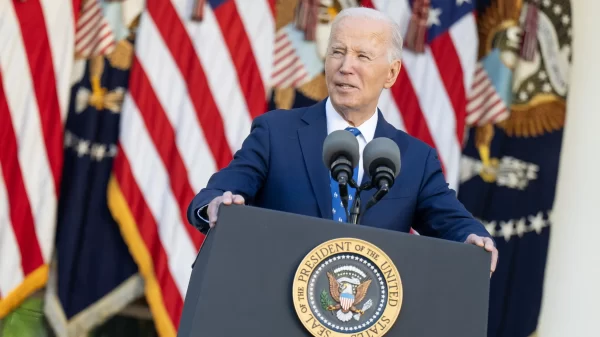By Bill Britt
Alabama Political Reporter
In this Legislative Session, the fight to further restrict payday and other small lending operations began with half-truths, false claims of support, and conservative lawmakers making common cause with the State’s most liberal organization.
Under the notion of protecting lower income families, single mothers, and minorities from themselves, a campaign called, Alabama’s Toxic Problem was launched featuring Dr. Neal Berte, President-Emeritus, Birmingham-Southern College. Dr. Berte solemnly recounts what he see as the horrors of payday lending. Perhaps the irony of a former banking board member and president of a private university who lives at a “tony” Mountain Brook address championing the cause of those who need a $500 loan is lost on the well-heeled who are paying for the ads, extolling the many pitfall of small borrowing for necessities. The irony is not lost on the individuals who need a small loan.
In the infomercial, Dr. Berte says his group is concerned about the interest rates on payday loans, and are “concerned about people having to put their cars up for collateral for title loans.”
While there’s no doubt Dr. Berte’s heart is in the right place it is somewhat disingenuous to claim the haut monde of Birmingham fully grasp the daily problems of lower-income Alabamians. But, like those who have used false arguments, old resolutions and past news reports to bolster their case against small loans, facts are sacrificed under the noble obligation to protect the working poor of Alabama from themselves.
Where is Dr. Berte’s indignation against credit card companies that charge 79 percent interest rates, or banks that charge exorbitant NSF fees? As a board member of Superior Bank, did he advocate lower interest rates on car loans for individuals with bad credit, or lower NSF fees for those who were forced to overdraft their checking account to pay the electric bill?
The people who Dr. Berte and other socially progressive groups want to help are those with few credit options.
Like other advocates who want to restrict payday lending at 36 percent, Dr. Berte and others claim payday borrowing inevitably leads to financial distress for the typical borrower and that lenders take advantage of that desperation and send consumers into an inevitable “cycle of debt.”
There is scant empirical data to support these claims. Vanderbilt University Professor Paige Marta Skiba, in an extensive review in 2012, found “there is little evidence that payday loans per se are unequivocally bad for borrowers or that consumers overall are better off without access to payday loans.”
According to a report on Economics and Institutions, “a substantial subset of payday borrowers are high-risk credit consumers, some of whom may be experiencing financial distress quite apart from their payday loan experience.”
A report on the liberal-leaning Reason TV argues the pros and cons of the issue. The report cites a study by Morgan and Strain which found, “Georgians and North Carolinians do not seem better off since their states outlawed payday credit.They have bounced more checks, complained more about lenders and debt collectors, and have filed for Chapter 7 (no asset) bankruptcy at a higher rate. The increase in bounced checks represents a potentially huge transfer from depositors to banks and credit unions. Banning payday loans did not save Georgian households $154 million per year, as the CRL projected, it cost them millions per year in returned check fees.”
Is there a need for further reform to small lending? Of course, there is, but like so many things in public policy, changes should be measured, fact-based, and passed without emotion, much less the sympathies of the wealthy.
Sadly, many times such battles are about money and not people. Payday lenders want to make a profit and non-profits want donations.
Dr. Berte is a board member of the Greater Birmingham Community Foundation which, according to its 2015 report, has $248 Million in total assets. The organization has $357 Million in grants awarded to the community since its founding in 1959. These good works are commendable, but the money that funds such institution comes from those who have been rewarded by the free market economy. It is the success of those who profit in under a free market system that allows for charitable organizations to do good works for the community.
Helping the State’s lower income families, single mothers, and minorities is a good thing. But, if payday and other small borrowers are denied access to storefront operations, the needy will turn to the unregulated online lenders. The online lenders will be more than happy to take advantage, and Dr. Berte and the Southern Poverty Law Center (SPLC) can do little to stop them.
Comedian John Oliver said of payday loans, “That’s why they are so dangerous: people actually need them.”
There are few things in a free society more dangerous than do-gooders who want to force their ideas down people’s throats for their own good.
For those of us who’ve known poverty and the silent despair that accompanies living from payday to payday, we can appreciate the sympathies that must pull at their Gucci-adorned heartstrings but most of us would just as soon you leave us along we have work to do.



















































